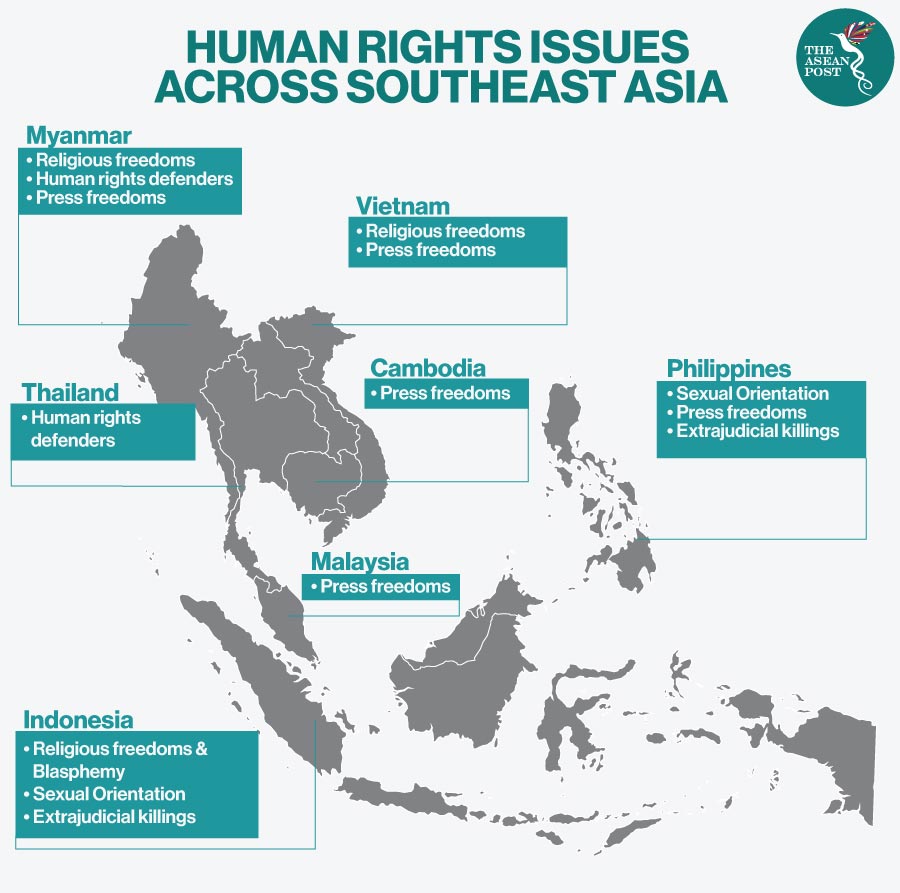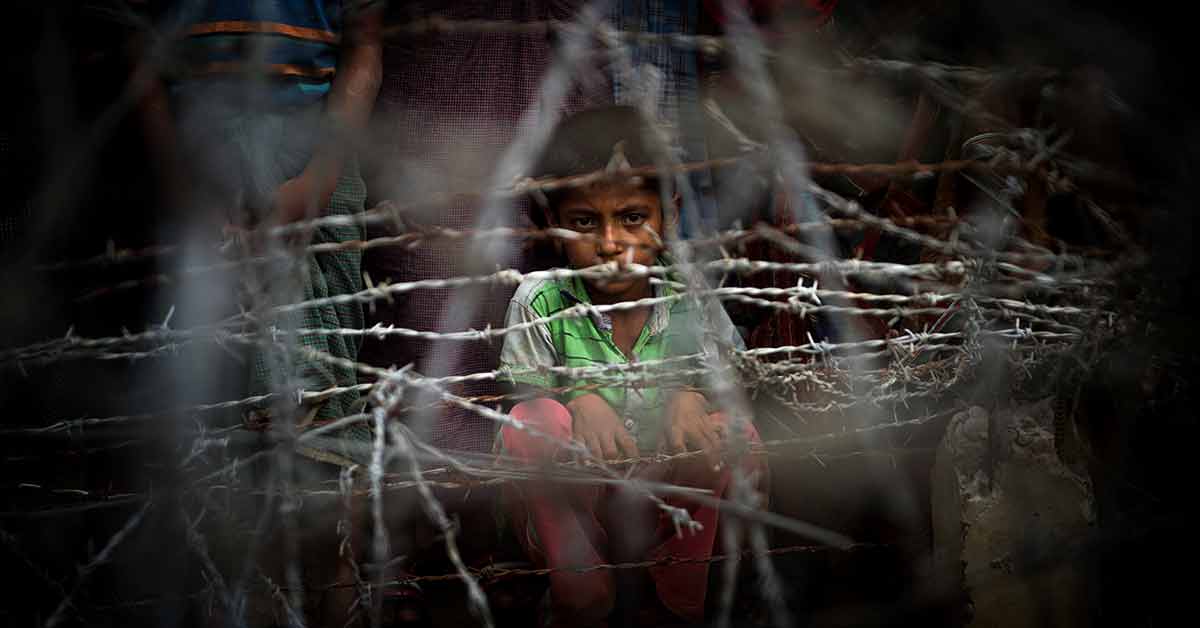Human rights are fundamental to all human beings, regardless of race, sex, nationality, ethnicity, language, or religion. However, due to the diverse cultures and varying political structures in Southeast Asia, tackling human rights issues remains a major hurdle for the region.
In the wake of the pandemic, human rights issues have been highlighted by authorities and rights groups around the world. In May, the ASEAN Intergovernmental Commission on Human Rights (AICHR) issued a statement that urged all ASEAN member states and sectoral bodies to ensure that their responses to the COVID-19 pandemic promote and protect the human rights of the people of ASEAN.
While ASEAN member states have made efforts to address the vast range of human rights issues and to protect the rights of vulnerable groups in their communities, there are others still finding it a challenge to move forward. Some of the issues continuously in heated debate in the region include press freedoms, religious freedoms, extrajudicial killings, women and children’s rights, ethnic conflicts and gender identity.
Religion And Blasphemy
In Myanmar, a country that is more than 80 percent Buddhist, religious minorities, including Hindus, Christians, and Muslims, continue to face threats and persecution.
It was reported that back in 2018, Myanmar authorities sent a letter to a Christian man in Yangon, warning him not to continue praying in his home with others without first receiving approval from them. Local officials also charged seven Muslims for holding public prayers under the Ward or Village Tract Administration Law.

Indonesia also continues to suppress the religious freedoms of its people. One infamous incident in 2017 was the arrest and sentencing of former Jakarta governor Basuki “Ahok” Purnama, a Christian, to a two-year prison term for blasphemy against Islam. According to human rights NGO (non-governmental organisation), Human Rights Watch (HRW), the Ministry of Religious Affairs has also drafted a “…religious rights bill that would further entrench the blasphemy law as well as government decrees making it difficult for religious minorities to obtain permits to construct houses of worship.”
Child Marriages
Child brides are not unheard of in Southeast Asia, even in today’s modern world.
According to Girls Not Brides, a global partnership of civil society organisations committed to ending child marriage – 35 percent of girls in Lao are married by the age of 18. Whereas nine percent are married before the age of 15. The United Nations Population Fund (UNFPA) stated that at least one in five girls aged between 15 to nine are married, while one in 10 of these girls has begun childbearing.
Over in Malaysia, a United Nations (UN) report from 2010 said that over 80,000 married women in Malaysia were girls between the ages of 15 and 19. However, the actual number could be higher as many couples in the country do not register their marriages.
Girls Not Brides cited trafficking, traditional attitudes, gender norms and pre-marital sex to be some factors that have contributed to child marriages.
There have been many cases in Malaysia and other parts of ASEAN where parents are too poor to support their children and would marry off their young daughters to older men so that they are taken care of. Other than that, in Malaysia, some conservatives would argue that it is better for girls to marry at a young age in order to curb pre-marital sex in the Muslim-majority country. In 2014, the UN expressed concerns that authorities in Malaysia were encouraging child marriages to curb pre-marital sex and children born out of wedlock. Sex outside of marriage is an offense in Malaysia. This often drives youths into marriage out of fear of prosecution.
“They face more risks of experiencing dangerous complications in pregnancy and childbirth, contracting HIV/AIDS and suffering domestic violence. With little access to education and economic opportunities, they and their families are more likely to live in poverty,” explained Girls Not Brides.
Sexuality
The HRW noted that the Philippines has showed improvements in treating its lesbian, gay, bisexual, and transgender (LGBT) community when it unanimously passed a federal non-discrimination bill back in September 2017 but has noted that they have yet to allow a companion bill.
Sexual orientation in Indonesia is a contentious issue. The HRW has said that Indonesia “continues to fail to uphold basic rights of LGBT people” as the country derailed its public health outreach program which consequently contributed to the five-fold increase in HIV rates for same sex couples since 2007.
Malaysia has also outright condemned those advocating for the LGBT community. Numan Afifi, an activist for the LGBT community there has often received death threats just because he speaks up for them. Malaysia’s former Prime Minister Mahathir Mohamad also said that Malaysia “cannot accept LGBT culture,” back in September 2018.
Brunei has been scrutinised for its recent implementation of Sharia (Islamic law) which allows the stoning of anyone found to be LGBT. Stephen Cockburn, Deputy Director of Global Issues at Amnesty International, said that this act is “sickening and callous in any circumstance”. In a response, Erywan Yusof, Brunei’s minister of foreign affairs, said that the implementation would “protect the sanctity of family lineage and marriage”. Following global outrage, the country currently has a moratorium in effect on the death penalty.
If human rights issues are not tackled seriously, development in other areas would seem relatively hollow and meaningless to those being persecuted on a daily basis. Efforts to address such issues together as a region must be done immediately, so that the ASEAN community can live in greater harmony, and continue to strive towards a better future.
Related Articles:
